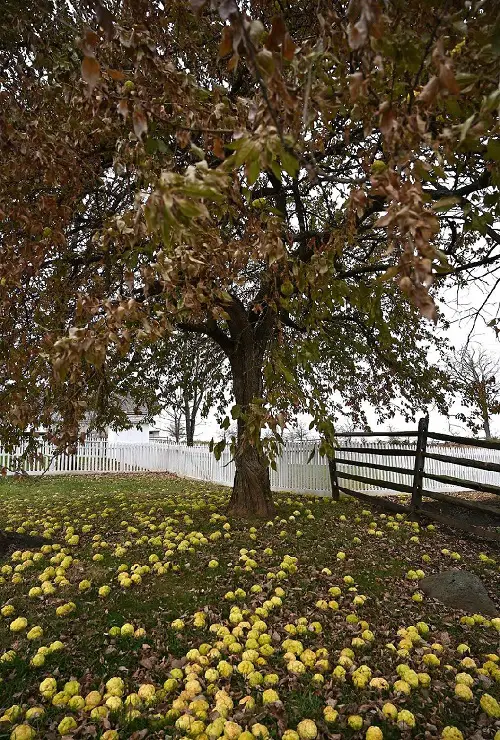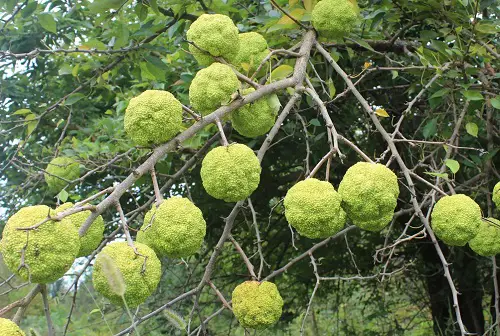Do you know What is a Hedge Apple? This article will answer all of your questions about this strange-looking fruit.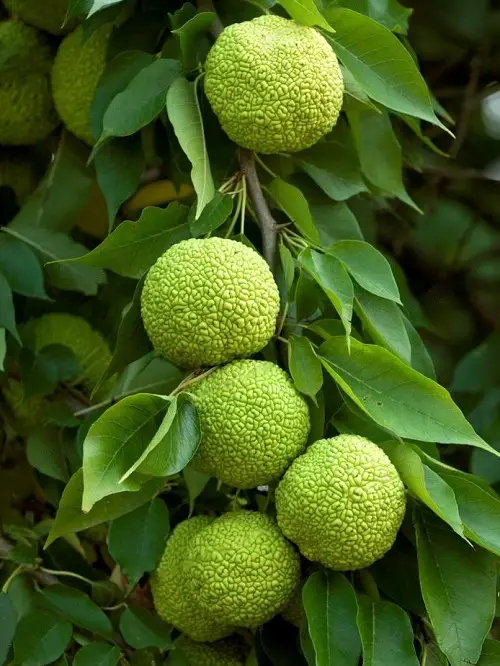
Also known as Osage orange, this strange-looking fruit is native to North America and is primarily known for its large, round, and bumpy appearance with a greenish-yellow color. The fruit is believed to have insect-repelling properties and use as a natural pest control method. Let’s have a look at What is a Hedge Apple and Are Hedge Apples Edible or not.
Other Names: Horse apples, Irish snowballs, or Monkey Brains
USDA Zones: 4-9
Learn how to grow Honeycrisp apples here
What is a Hedge Apple?
Scientifically popular as Maclura pomifera, it is large and ranges from a size of an orange to the size of a grapefruit. The fruit has a rough, green-yellow exterior and a white, milky sap that oozes out when the fruit is cut.
The wood of the tree is popular for its strength and durability, making it a great choice for fence posts, bows, and other outdoor construction projects.
Is Pineapple a Citrus Fruit or a Berry? Click here to know.
Are Hedge Apples Edible? Can You Eat Hedge Apples?
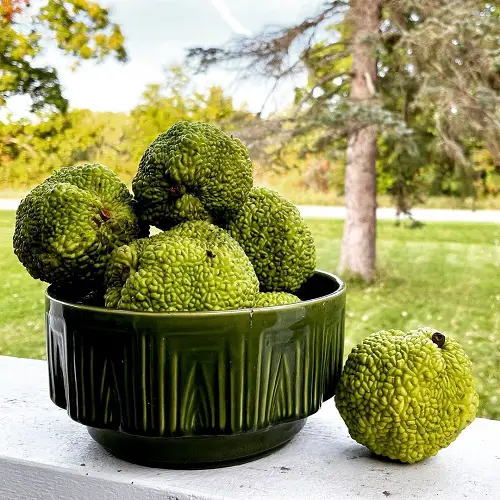
So, Are Hedge Apples Edible? Raw consumption of Hedge apples is not safe because of the milky sap, which can be irritating to the skin and eyes.
If you have a question – Can You Eat Hedge Apples? Well, the straight answer to this question is no, you can’t.
Click here to know about the best Types of Gourds
Hedge Apple Uses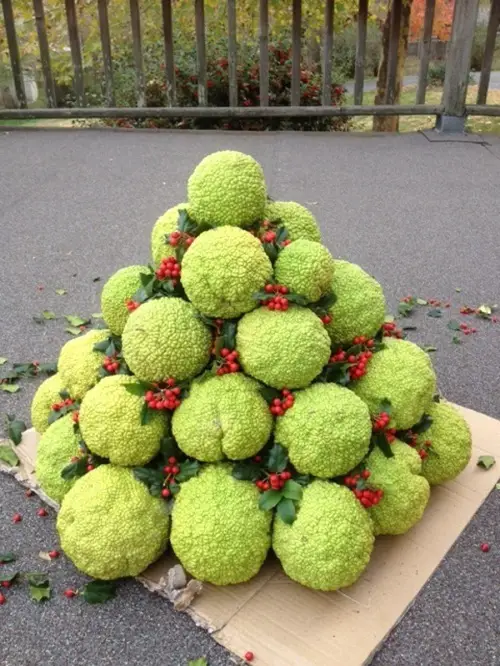
Here are the two most important Hedge Apple Uses:
1. Wood
Its wood is popular for its strength and durability, Which makes it a great option for fence posts, bows, and other outdoor construction projects.
The dense hardwood is resistant to decay and insect damage, and its the ability to withstand harsh weather conditions.
2. Medicinal uses
People use its bark and leaves to treat a variety of ailments, including digestive issues, respiratory problems, and skin conditions.
Check out 48 Best Medicinal Plants with Their Benefits here
Do Animals Eat Hedge Apples?

Hedge apples are not toxic to most animals, and deer, squirrels, and some birds eat them, particularly during the winter months when other food sources are scarce.
Do Deer Eat Mums? Are Mums Deer Resistant? Click here to know.
Do Hedge Apples Keep Spiders Away?
There is no scientific study to back this claim, but spiders generally stay away from the fragrance of this fruit, so it would be a good idea to cut these fruits and keep them near the spider webs to get rid of them.
How to Grow Hedge Apple?
Growing this tree can be beneficial for several reasons, and it is a very low-maintenance tree. It has ornamental value and can help promote biodiversity, and it has other practical uses making it a good option for growing.
Light
It requires full sun exposure to thrive, but it can also tolerate partial shade. When planting a hedge apple tree, it is important to choose a location that receives at least 6 hours of direct sunlight per day.
Soil
These trees prefer well-draining soil but can also adapt to a range of growing mediums, including clay, loam, and sand.
The soil should be fertile, with a pH level between 6.0 and 7.0.
Water
The trees have moderate water requirements and prefer consistent moisture in the soil. However, they can also tolerate drought conditions once established.
It is important to avoid overwatering, as this can lead to root rot and other problems.
Temperature
It is tolerant to a range of temperatures and can grow in USDA Hardiness Zones 5 through 9. However, it may experience some dieback in areas with harsh winter temperatures or extreme summer heat.
Here are the Best Edible Vines to Grow in Containers & Gardens
Hedge Apple Recipes
The fruit may look really tempting, but unfortunately, there are no Hedge Apple Recipes that you can try as it is not safe for human consumption. Moreover, the milky juice present in the stems and fruit may cause irritation to the skin.
Click here to know 11 Homemade Hummingbird Food Recipes
How to Use Hedge Apples for Pest Control
Research conducted at Iowa State University has demonstrated that chemicals extracted from the fruit can be repellant to tested insects (German cockroaches, mosquitoes, and houseflies). In addition, sliced hedge apples are also great for repelling insects in small spaces.


